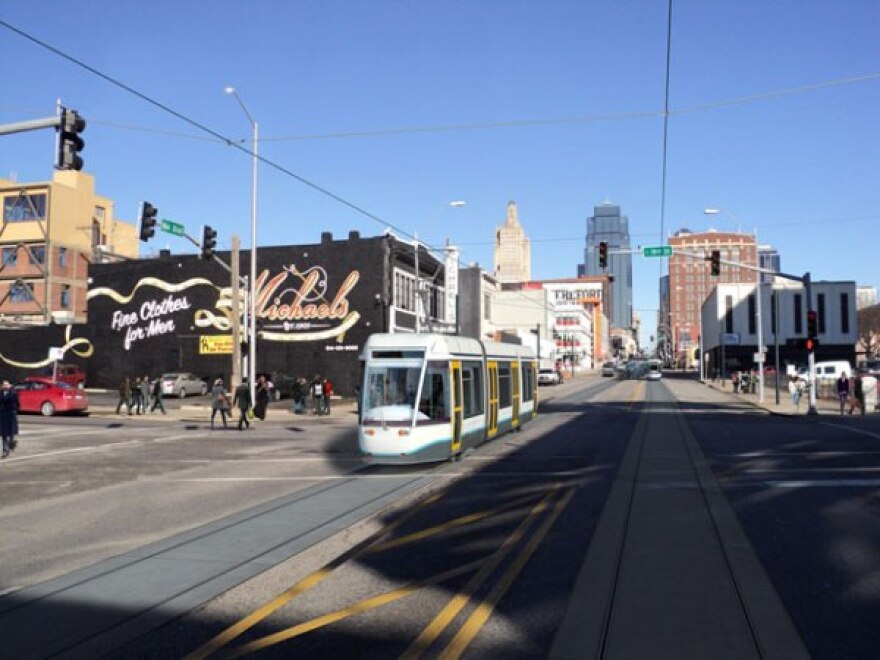In just over two months, Kansas Citians will take to the polls to elect 12 council members that will lead the city for the next four years.
Due to term-limits, half of the seats held by incumbents will be wide open, which means that if Mayor Sly James is re-elected, which looks likely, he will have a council very different from the one he enjoyed his first four years.
Outgoing members Cindy Circo, Jan Marcason, and John Sharp joined Up To Date’s Steve Kraske to talk about their greatest accomplishments in their time on the council. They also discussed issues still left on the table, such as a downtown convention hotel, Uber, the future of KCI, east side development and the expansion of the streetcar.
Interview Highlights:
On their greatest accomplishments on the city council
Jan Marcason:
One thing that I’m most proud of is the adoption of our sewer overflow control plan. That's a $5 billion plan. We were under a federal mandate to clean up our sewer system. They had talked about it for many years and we got it done.
I pride myself on being the champion of un-sexy causes. The other thing I worked hard on was making sure the city’s financial house was in order. I was very pleased that the citizens adopted a charter change to make sure that we have a 5 year financial plan adopted by November of every year. So, financial stability and sewers are not glamorous issues but I do feel like those are things that leave a lasting legacy for the city.
John Sharp:
The groundwork we’ve laid for significant economic growth in the Southland, which will benefit the whole city. We now have the Cerner project being constructed. That will bring 16,000 Cerner jobs to that area. That’s something the 5th and 6th council district representatives have worked closely together on ... You're going to see tremendous growth all along that Bannister corridor from State Line clear over to Lee's Summit.
On streetcar expansion and the need for improved public transportation
Cindy Circo:
It’s very unfortunate that the last vote was politicized. The east side could benefit dramatically from the streetcar delivering transportation access to people that can use the jobs that go directly into downtown. [The vote] was highly politicized. I think we’ll see a citizens group be the champion of the extension and try to take as much political fodder out of that. The citizens of the next leg [the south leg] want it and will put their time effort and energy into it. The east side really missed a huge opportunity.
John Sharp:
I think if we don't extend it in the near future to at least the UMKC campus, people in future generations will think we’re nuts. The very short line downtown is nice but it doesn't do what we wanted to accomplish, which is promote economic growth along some of our key corridors ... it just makes sense to connect it to the Plaza and to UMKC.
Jan Marcason:
The biggest problem [of not having better public transportation] is attracting young people and the entrepreneurs that are flocking to Kansas City. They want a good transportation system and to live and work in a walkable city. Also, for senior citizens — baby boomers are becoming retirees and they don't want to drive. We all want to be able to be without a car and get where we need to go on public transportation.
On the Kansas City No Violence Alliance (KC NoVA) and reducing crime in Kansas City
Cindy Circo:
KC NoVA is working. It’s proving itself, but one year is not the measuring stick, we want to make it sustainable — so we need to continue on the same path. It makes sense. There are people we can divert out of a life of crime and try to change the culture of revenge. That is a lot of work. That much work and that much coordination is hard to sustain. So we have to stick to it, make sure that our processes and procedures are in place and the leadership has to continue to be supportive of that.
John Sharp:
I think KC NoVA has great potential, and I think we just need to stay with it. It achieved quite a bit of success in reducing homicides last year, although they are still way too high, and so far this year hasn't been so good. That model has worked in other communities where you really focus your law enforcement's efforts on the criminal networks we have in town. Its a very tiny percentage of our citizens committing the huge percentage of our crimes … we’re not going to turn it around overnight, but its worked in other cities, it will work here.




